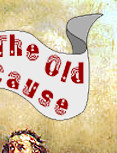MARXIST
METALLURGY
Marxism,
as Lenin said, has three sources: early French socialism,
Hegel’s philosophy, and English political economy. It
took a lot of welding and hammering to make of these
a "system" – much less a predictive "science" – but the girth of the framework and the sheer effrontery
of its founders convinced many people that this substitute
world religion was the key to a radiant future. Despite
incoming evidence of millions killed, they were legion
who looked Marxism to emancipate and liberate mankind
and wax our collective cars.
UNHAPPY
DRAWBACKS
Unfortunately,
much was wrong with the constituent parts of Marxism
and the synthesis was hardly promising. The English
political economy known to Marx and Engels embodied
serious mistakes, only overcome in the "marginalist
revolution" of the 1870s. Committed to fallacies
which propped up his labor theory of value, Marx never
cottoned on to the new economics. As for Hegel, he meant
well, just wanting to repackage liberalism and western
philosophy in a form suited to the genial, orderly Prussian
estate system under "rational" bureaucracy.
This was bad enough, but Hegel just had to proclaim
a determinist vision of history, which – among other
things – had been leading up to his philosophical system – a wonderful piece of egotism. How Marx’s grafting
faulty economics onto that was of any help is an open
question. Quite possibly, some career-building young
scholar, years from now, will show that we are victims
of bad translations and that the "young Marx"
really meant to say "ode of induction," not
"mode of production," and was thus chiefly
interested in logothetic goat-songs and not what we
thought at all. Here, at least, we would find relief
from all those broken eggs, breakfast foods, railway
timetables, and accusations of "petty bourgeois"
deviltry, which adorn the Marxist literature.
THE
THIRD ELEMENT
But
I am getting off the subject. The last prop of Marxism,
early French socialism, is the most interesting, precisely
because its paladins, the Count St. Simon and Auguste
Comte, worked from – and screwed up – radical French
laissez faire liberalism. These liberals taught
that feudal magnates, state churches, standing armies,
and bureaucracies distorted market outcomes in their
own favor, causing "class conflict" based
on political relations.1 The
lesson was separation of economy and state. St. Simon
and Comte decided that class conflict existed in
the free market and thus a new class of experts – bankers,
engineers, and (oddly) artists – was needed to supervise
the new society growing up in western Europe.
This
was a very handy doctrine for would-be state managers
and it comes down to us in two forms, one based on Marx
and the other – coming by way of Positivism and its
successors – which is now everywhere ascendant. This
ascendancy is the inner meaning of Francis Fukuyama’s
famous "end of history." These days, the two
streams are reuniting in a program of universal state
social engineering.
KEEP
ON THE SUNNY SIDE OF LIFE
So
what, then, is the good news? It is that – forgetting
their imposing metal sculpture – Marx and Engels
could do rather good political analysis in the
laissez faire liberal tradition, as Marx’s 18th
Brumaire of Louis Bonaparte shows. This is also
true of a number of recent Marxist historians such as
Eugene D. Genovese, Perry Anderson, Raymond Williams,
and Edward (E. P.) Thompson, who get above their raisin’,
asking good historical questions about who stood to
gain from past political actions. Often, having done
good book-length political analyses, these writers restore
themselves to orthodoxy by asserting that, in the end,
the events described are explained by the all-wielding
mode of production. Such exercises detract a bit from
useful books.
BEYOND
‘ACTUALLY EXISTING SOCIALISM’
It
helped, of course, that the "Anglo-Marxist"
historians threw off certain illusions about Soviet
Russia. By the late fifties, the permanent cold war,
the Hungarian invasion (1956), and revelations[!] about
Stalin in Krushchev’s "secret speech" gave
rise to serious discussion of "actually existing
socialism" and to large-scale defections from the
English CP. The late E. P. Thompson was among those
seceding.
This
was part of what made the new left "new" –
on both sides of the Atlantic. Unlike some who abandoned
"the God that failed," in the thirties, forties,
or later, Thompson declined to affirm the total righteousness
of the American empire and all its works. He did not
reject socialism nor did he conclude that Marxism, as
such, was used up. Instead, he chose to work within
it, deploying that framework with a flexibility few
have equaled.
ASKING
SOME OF THE RIGHT QUESTIONS
Back
in the 1790s, a Reverend Fawcett put Thomas Paine’s
The
Rights of Man and Edmund Burke’s Reflections
on the Revolution in France under one cover
because, together, he said, they made a good book. (In
the late 1960s, an American paperback publisher was
seized with that same insight.) I sometimes think that
Thompson’s The
Making of the English Working Class, bound with
some works of T.S. Ashton and Max Hartwell, would make
a good book. Thompson was certainly wrong about the
effect of industrialization on workers’ incomes; more
or less conceding this, he stressed "qualitative"
considerations in order to salvage Marx and Engels’s
indictment of the industrial revolution. His reconstruction
of artisan movements in their transition from constitutional/republican
thinking to trade unionism and socialism is well worth
reading, even if one rejects the perspective. He often
noticed coercive uses of state power, which altered
economic outcomes, but which others overlooked. And
where conventional economic historians take wars as
mere background, Thompson underlined their impact on
people and questioned the wars’ very necessity. His
study of the draconian Black Act (1723), which the Whig
magnates passed to stop "poaching," convinced
him that English law – with its language of rights and
liberty – had achieved an existence "independent"
of the mode of production.2 Despite
the intentions of the hard-minded gentry, the workings
of the law sometimes gave them fewer hangings than they
wanted. In our day, it is the so-called "radical
right" which is trying, on this side of the water,
to rediscover the radical potential of English law.
NEUTRALISM
AND PEACE FOR EUROPE
What
I find most endearing about Thompson is his running
battle with U.S./Soviet orthodoxy during the last decade
or so of the cold war. He was a founder of, and active
participant in, the much-derided European "peace
movement," working with such groups as END and
CND, whose most famous "campaign" attempted
to keep the Americans’ cruise missiles off British soil.
His later writings mostly concern these efforts. See
especially Beyond
the Cold War (hereafter "BCW") and
The
Heavy Dancers (hereafter "HD").3
Back
when the cosmic duel between the evil and not-so-evil
empires seemed permanent, Thompson questioned whether
a constant upward-ratcheting of nuclear "delivery
systems" really kept the peace or whether it maximized
the potential for disaster. The Reagan administration’s
theatrics and creation of new "systems" led
him to ask, along with thousands of other Europeans,
whether it was time to ask the Americans and the Soviets
both to pack up and get out of town. This seemed even
more imperative, given the many Reagan "doctrines,"
especially the one holding that Europe was just
a "theater" of any foreseeable nuclear
exchange, war, lottery, mistake, whatever. Whether this
was actually loonier than the previous MAD doctrine
(Mutually Assured Destruction), I can’t say, but it
made the Europeans a bit edgy.
Getting
"ground zero" out of Europe involved attempts
to by-pass Soviet bloc authorities and communicate with
like-minded people in the east. It also involved trying
to convince the tone-deaf US leadership that there were
people in Europe and not just targets and hostages
to great power maneuvering. This didn’t fly very well
in some circles, and Thompson spent much time denying
that he was "orchestrated" by the devious
eastern bloc. Then he had to spend more time refuting
Soviet bloc charges that he was "orchestrated"
by the bourgeois-revanchist Yanks. I doubt that anyone
orchestrated him, including the New Left Review.
In that, he reminds of William
Appleman Williams or Noam Chomsky – not sound
on economics, but stalwarts on issues of war and peace.
COLD
WAR ITS OWN JUSTIFICATION
"Determinism"
and "exterminism" were main themes in Thompson’s
polemics against the Reaganites and their British and
European puppets. He came to believe that analysis of
the inner logic of the two-empire confrontation, which
tried to sideline all other views and interests, outweighed
debate on its historical origins. Whatever the merits
of Marxist theses on capitalist imperialism or western
Marxist discussions of Soviet Russia as a failed socialism,
the actually existing cold war transcended whatever
origins such analyses revealed. "[T]he Cold War
is now about itself. It is an ongoing, self-reproducing
condition, to which both adversaries are addicted"
(BCW, p. 175 [my emphasis]).
The
problem was the two science-intensive military-industrial
complexes and their insanely destructive weapons systems.
In a sense, the US and the Soviet Union were
their weapons systems. That was the logic put forward
by the ghouls on both sides, who were mirror images
of one another.
BIG,
UNTHINKABLE ‘THEORY’
Theories
of "deterrence" were secondary phenomena.
The United States invented atomic weapons the better
to kill big numbers of enemy civilians in Germany and
Japan. (Germany collapsed too soon to enjoy them.) Only
after Soviet Russia, too, had the bomb, did Pentagon
thinkers begin deploying the "deterrence"
rationalization for mass-producing what George Kennan
called "the most useless weapon ever invented.
It can be employed to no constructive purpose. It is
not even an effective defense against itself" (quoted
in BCW, p. 1). It was, however, useful for killing lots
of civilians, if you happen to have crossed that moral
threshold. (On the record, only one power has ever used
one.)
Thompson
brands deterrence "a pitiful, lightweight theory."
"It is espoused," he continues, "in its
pristine purity, only by a handful of monkish celibates,
retired within the walls of centres of Strategic Studies.
It cannot endure any intercourse with the actual world"
(BCW, p. 3). Having once read Herman Kahn, who was as
unreadable as his theses were "unthinkable,"
and Bernard Brodie (more readable), I tend to agree
with Thompson. Whether western forces had "deterred"
a Soviet attack on western Europe, all these years,
was not demonstrable, and the role of nuclear weapons
in this happy outcome even less so. Deterrence theory
was back in vogue, and by pushing onwards to ever-new
"worst-case scenarios," justified lunatic
policy initiatives which made war more likely. Thompson
coined the term "exterminism" to capture this
iron "logic" (see HD, pp. 137-38). "Modern
warfare is the ultimate negation of human agency,"
he writes, adding "[t]aboos against the massacres
of non-combatants have already been broken beyond repair"
(HD, pp. 192-93).
Soviet
rationalizations and ideology were no better: "The
ideology of ‘actually existing Socialism’ is nothing
but patches and holes" (HD, p. 224). Along with
other evils, Soviet Russia’s massive commitment of resources
to its military-industrial complex worked against the
introduction of market reforms. Getting well outside
of easy Marxist assumptions, he asks "[c]an bureaucracies
and states not have motives for arming?"(BCW, p.
48) And would this not apply to both empires?
NOTHING
CAN STOP THE ARMY AIR CORPS
But
the main show was the American one. The new US initiatives
in Europe amounted to running "a slow-playing Cuban
missile crisis in reverse" (BCW, p. 36). Why anyone
believed this would promote peace and security was hard
to say. American posturing was, at best, boring, and,
at worst, a threat to peace. Homing in on American neo-conservative
dogma, Thompson wrote of "the pretence that America
is not a race or nation at all, but… the universal Future"
and the "arrogant claim to a universalism of virtues,"
with some sort of "prerogative to blast in at every
door and base itself in any part of the globe in the
commission of these virtues" (HD, p. 40). The Reagan
team – men "with minds like delivery-systems, whose
knowledge of Europe is minimal" – believed
in the "white wizardry of Gandalf-figures such
as Henry Kissinger, Zbigniew Brzezinski, or Al Haig,"
who were rescuing "confused little [European] hobbits"
from the "evil kingdom of Mordor" (BCW, 114,
9).
Thompson
quotes Caspar the Friendly Weinberger, who asserted
that "there is no corner of the world so remote,
no nation so insignificant, that it does not represent
a vital interest of the United States." This is,
says Thompson, "a chilling claim, when made by
the War Minister of the most powerful nation ever know,
fully capable of incinerating the earth" (HD, p.
253). Indeed it is.
GO
HOME AND STAY INDOORS
The
European reaction was boredom mingled with fear that
these unhinged boy scouts with all their can-do know-how
and hardware – and minimal cultural, historical, political,
geographical (shall I stop?) knowledge – might
well do something stupid. These, after all, were people
who thought it "necessary" – and a good idea
to boot – to put numberless miss-aisles on railway cars
and roll them all over Utah and Nevada in a cosmic shell
game to confuse those shifty Soviets.
What
was needed, Thompson concluded, was a British and European
declaration of independence from the Americans. The
Americans resented any positive change based on European
initiative. Hence, their intervention to "stabilize"
the situation – that is, keep the cold war system intact
– when Solidarnosc was first disturbing things in Poland.
Europeans needed to take matters in hand, ignoring the
outraged American yelps about "Finlandisation,"
"Austrianisation" or even "Swedenisation"
(HD, pp. 339-40). He had a point: in the east, Finlandization
would have been a real improvement, and I’ve never heard
the Austrians complain about their sad fate, settled
in 1955.
All
this may now seem a bit unreal. The debate ended when
the Soviet Union collapsed without consulting its co-sovereign.
Poor NATO never showed its mettle in actual combat,
at least not before its reason for existence withered
away. It didn’t show much mettle even then. It did however
demonstrate the possible drawbacks of a single-empire
world, what with the Americans signing everyone up for
instant NATO membership and matching credit card – with
the exception of wicked nationalists, neo-fascists,
and other bad actors. Europe may still need that declaration
of independence. Still, a lot of folks wanted and needed
the cold war. Maybe that’s why so much work is going
into getting us another one.
Was
Thompson "anti-American"? Not that I’ve noticed.
He did ask, however, "for a reversion to good old-fashioned
Middle American isolationism": "There is nothing
wrong with authentic American nationalism, if it is
concerned with America’s own cultural and historical
traditions: but will it please go home and stay indoors?"
(HD, p. 38) Not bad advice, really, and it seems very
American to me.
References
[1]
Ralph Raico, "Classical Liberal Roots of the Marxist
Doctrine of Classes" in Yuri N. Maltsev, ed., Requiem
for Marx (Auburn: Ludwig
von Mises Institute, 1993), pp. 189-220.
[2] E. P. Thompson, The
Making of the English Working Class (New York:
Vintage Books, 1966[1963]) and Whigs
and Hunters (New York: Pantheon, 1975).
[3] E. P. Thompson, Beyond
the Cold War: A New Approach to the Arms Race and Nuclear
Annihilation (New York: Pantheon, 1982) and
The
Heavy Dancers: Writings on War, Past and Future
(New York: Pantheon, 1985). Many of Thompson’s essays
appeared in the New Left Review.
Please
Support Antiwar.com
A
contribution of $20 or more gets you a copy of Justin
Raimondo's Into the Bosnian Quagmire: The Case Against
U.S. Intervention in the Balkans, a 60-page booklet
packed with the kind of intellectual ammunition you
need to fight the lies being put out by this administration
and its allies in Congress. Send contributions to
Antiwar.com
520 S. Murphy Avenue, #202
Sunnyvale, CA 94086
or
Contribute Via our Secure Server
Credit Card Donation Form

|









